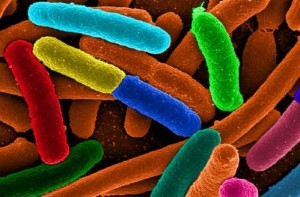
More evidence that low-calorie sweeteners are bad for your health
Studies show that artificial sweeteners can raise the risk of hypertension, metabolic syndrome, type 2 diabetes and heart disease, including stroke.

Natural Health News — Artificial sweeteners – promoted as aids to weight loss and diabetes prevention – could actually hasten the development of glucose intolerance and metabolic disease, according to a startling new study.
What is more, say the researchers writing in the prestigious scientific journal Nature, they do so in a surprising way: by changing the composition and function of the gut microbiota – the substantial and naturally occurring population of bacteria residing in our intestines.
These findings, the results of experiments in mice and humans, suggest that the widespread use of artificial sweeteners in drinks and food (and even in medicines for children and adults) may be contributing to the obesity and diabetes epidemic that is sweeping much of the world.
For years, researchers have been puzzling over the fact that non-caloric artificial sweeteners do not seem to assist in weight loss, with some studies suggesting that they may even have an opposite effect.
Even though even though they do not contain sugar, the Israeli research team discovered that artificial sweeteners still have a direct effect on the body’s ability to utilise glucose. Glucose intolerance – generally thought to occur when the body cannot cope with large amounts of sugar in the diet – is the first step on the path to metabolic syndrome and adult-onset diabetes.
Unsafe, even at USDA approved levels
In the first experiment the scientists gave mice water laced with the three most commonly used artificial sweeteners – aspartame, sucralose and saccharin – in amounts equivalent to those permitted by the US Food and Drug Administration (FDA).
These mice developed glucose intolerance, as compared to mice that drank water, or even sugar water. Repeating the experiment with different types of mice and different doses of the artificial sweeteners produced the same results – these substances were somehow inducing glucose intolerance.
The researchers set out to test their theory that the gut microbiota are involved in this phenomenon.
Their hypothesis was that the bacteria might do this by reacting to new substances like artificial sweeteners, which the body itself may not recognise as “food.” Indeed, artificial sweeteners are not absorbed in the gastrointestinal tract, but in passing through they encounter trillions of the bacteria in the gut microbiota.
When the researchers transplanted gut bacteria from glucose intolerant mice into those with ‘sterile guts’ , those mice too developed glucose intolerance. A more detailed study revealed profound changes to their bacterial populations, including new microbial functions that are known to be linked to a propensity to obesity, diabetes, and complications of these problems in both mice and humans.
Humans at risk
The researchers then turned their attention to humans. As a first step, they looked at data collected from their Personalized Nutrition Project, the largest human trial to date to look at the connection between nutrition and microbiota.
Here, they uncovered a significant association between self-reported consumption of artificial sweeteners, personal configurations of gut bacteria, and the propensity for glucose intolerance.
What followed was a controlled experiment, asking a group of volunteers who did not generally eat or drink artificially sweetened foods to consume them for a week, and then undergo tests of their glucose levels and gut microbiota compositions.
The findings showed that many – but not all – of the volunteers had begun to develop glucose intolerance after just one week of artificial sweetener consumption. The composition of their gut microbiota explained the difference: the researchers discovered two different populations of human gut bacteria – one that induced glucose intolerance when exposed to the sweeteners, and one that had no effect either way.
They propose that certain bacteria in the guts of those who developed glucose intolerance reacted to the chemical sweeteners by secreting substances that then provoked an inflammatory response similar to sugar overdose, promoting changes in the body’s ability to utilise sugar.
According to Dr Eran Elinav from the Weizmann Institute in Israel “Our relationship with our own individual mix of gut bacteria is a huge factor in determining how the food we eat affects us. Especially intriguing is the link between use of artificial sweeteners – through the bacteria in our guts – to a tendency to develop the very disorders they were designed to prevent; this calls for reassessment of today’s massive, unsupervised consumption of these substances.”

Please subscribe me to your newsletter mailing list. I have read the
privacy statement